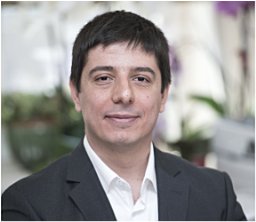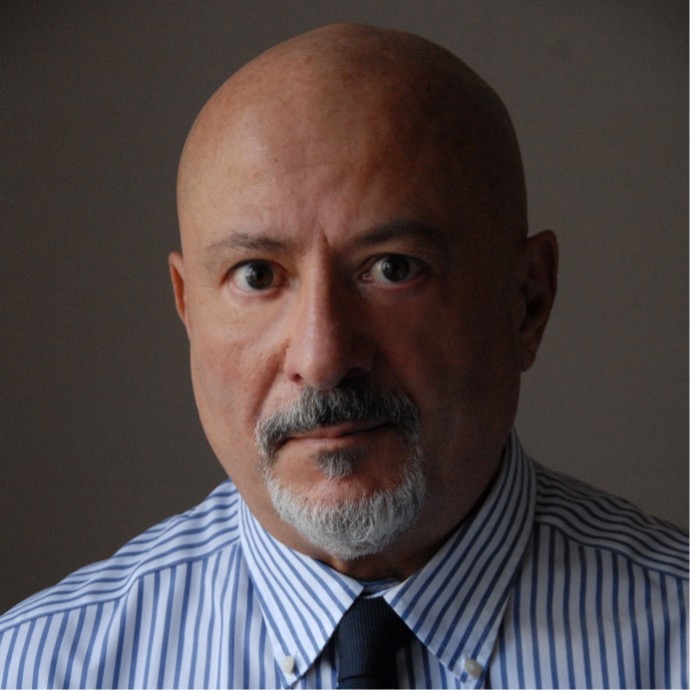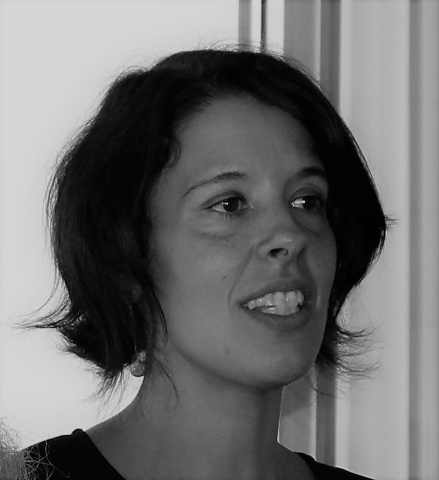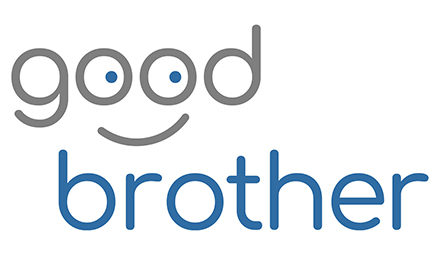2023 Training School in Bucharest
13-16 June 2023
Bucharest, Romania
Call for Trainees
The aim of the Goodbrother COST Action and this 2nd Training School is to increase the awareness about the ethical, legal, and privacy issues associated with audio and video-based monitoring and to propose privacy-aware working solutions for assisted living, by creating an interdisciplinary community of researchers and industrial partners from different fields (computing, engineering, healthcare, law, sociology) and other stakeholders (users, policymakers, public services), stimulating new research and innovation. Goodbrother will offset the “Big Brother” sense of continuous monitoring by increasing user acceptance, exploiting these new solutions, and improving market reach.
The Goodbrother Training School is a multidisciplinary event open to professionals, researchers, and Ph.D. students with a B2 or equal level of English and relevant skills in the aforementioned areas. Any interested applicant must complete the Application Form where they will be required to demonstrate experience and competence in the above-mentioned focus (professional or research experience).
The selected applicants (trainees) will benefit from a Trainee Grant to participate in the school activities from the 13th to 16th June 2023. This grant is expected to cover the travel, accommodation, and expenses. This grant will follow the scheme available at the Annotated Rules for COST Actions, with a daily allowance of €90 to cover accommodation, meals, and short distance travel; and a recommended maximum amount of €400 for long travel.
Selected trainees shall create an e-COST profile at https://e-services.cost.eu including bank details prior to accepting their e-COST invitation. They shall submit via e-COST a completed online travel reimbursement request within 15 calendar days after the end date of the training school.
Eligibility criteria:
- Applicants shall be engaged in an official research program as a PhD Student or postdoctoral fellow or can be employed by, or affiliated to, an institution, organisation, or legal entity which has within its remit a clear association with performing research, located in a COST Members or an NNC (Near Neighbour Country):
- COST Members: Albania, Armenia, Austria, Belgium, Bosnia and Herzegovina, Bulgaria, Croatia, Cyprus, Czech Republic, Denmark, Estonia, Finland, France, Georgia, Germany, Greece, Hungary, Iceland, Ireland, Israel, Italy, Latvia, Lithuania, Luxembourg, Malta, the Republic of Moldova, Montenegro, The Netherlands, The Republic of North Macedonia, Norway, Poland, Portugal, Romania, Serbia, Slovakia, Slovenia, Spain, Sweden, Switzerland, Turkey, Ukraine, and United Kingdom.
- NNCs: Algeria, Azerbaijan, Egypt, the Faroe Islands, Jordan, Kosovo, Lebanon, Libya, Morocco, Palestine, Syria, and Tunisia.
Trainers (to be confirmed)
- Dr Pau Climent-Perez, University of Alicante, Spain
- Prof. Francisco Flórez-Revuelta, University of Alicante, Spain
- Prof. Martin Kampel, Vienna University of Technology, Austria
- Dr Lambros Lambrinos, Cyprus University of Technology, Cyprus
- Dr Petre Lameski, Faculty of Computer Science and Engineering, North Macedonia
- Dr Cosmina Paul, Ana Aslan Academy, Romania
- Dr Gianluigi M. Riva, Università Bocconi, Italy
- Prof Luiza Spiru, Fundatia Ana Aslan International, Romania
- Dr Andreea Stamate, Ana Aslan International Foundation, Romania
- Dr Razvan-Ioan Trascu, Ana Aslan International Foundation, Romania
Programme (to be finalised)
- Computer vision for AAL
- Privacy preservation in video data
- Longevity Medicine -the challenge between Geroscience and Gerontechnology
- The facilitators and barriers to the adoption of the new technologies in health-care. Failing the future?
- Improving User Acceptance in Large-Scale High-Tech Pilots – Lessons Learnt from SMART BEAR Project
- Understanding Data Protection: the legal basics from privacy origins to audio-video technologies
- Algorithmic Governance of Care: Fairness and Trustworthiness
- Complementing video-based AAL technologies with the Internet of Things
- Explainable AI
- Challenges that research projects working on digital solutions for older adults need to be aware of, using examples from AAL projects
Key dates
- Applications opened: 4 April 2023
- Applications submission deadline: 5 May 2023
- Confirmation to the selected trainees: 10 May 2023
- Deadline for e-Cost registration and confirmation: 19 May 2023
- Training School days: 13-16 June 2023
Local Organiser
Ana Aslan International Foundation, Romania
Newsletter – March 2023
Newsletter – December 2021
Human Centered Computer Vision

Presenter: Hazım Kemal Ekenel
Date and time: 7th July 2pm CEST
Abstract:
Facial image processing and analysis is the task of automatically analyzing face images in order to acquire information about the depicted persons. This includes a person’s identity, emotional state, facial gestures, age, and gender. The large number of European projects that involves facial image processing as a part shows its crucial role in a wide range of application domains, such as security, smart environments, human-computer interfaces, and content-based image and video analysis. Considering the advanced security needs of the society and the shift to the paradigm of human-centered computing for natural interfaces, the interest in face processing is expected to continue with increasing pace. In this talk Dr. Ekenel is going to present an overview of computer vision research activities @ Smart Interaction and Machine Intelligence (SiMiT) Lab. The covered topics will be about face alignment, face recognition, facial expression analysis, and their applications. Deep learning topics like transfer learning, dataset bias, domain adaptation, and context adaptation will also be discussed.
Bio:
Dr. Ekenel is a full Professor at the Department of Computer Engineering in Istanbul Technical University in Turkey. His research interest covers computer vision and machine learning with a focus on face analysis and human perception. He has published more than 100 peer reviewed publications in prestigious international journals, conferences, and workshops in the related fields. He received his Ph.D. degree in Computer Science from the University of Karlsruhe (TH) in 2009. He has founded the Facial Image Processing and Analysis group at the Department of Computer Science in Karlsruhe Institute of Technology. He has received the EBF European Biometric Research Award in 2008 for his contributions to the field of face recognition. He is also a recipient of the Science Academy Turkey’s Young Scientist Award 2018 and IEEE Turkey Chapter Research Award 2019.
Academic Website: https://web.itu.edu.tr/ekenel/
Google Scholar: https://scholar.google.com/citations?user=LfIDj68AAAAJ&hl=en
The Pan-opticon effect in AAL

Presenter: Emilio Mordini
Date and time: 1st June 11.00am CEST
Abstract:
English philosopher and political reformer Jeremy Bentham (1748-1832) conceived in 1791 a model of prison that, according to him, was much cheaper and more functional than the deportation of convicts in distant colonial islands. In his model prison, there was only one guardian, placed in a tower central, who could check the inmates in all the cells, placed in a circle with the door in the inner part of the circle and a window to give light to the outer wall. The inmates could not see the other prisoners, nor – thanks to an ingenious play of light and backlight – the guardian, who instead had a complete view of their life inside the cells, and also on the activity of the guards under him. Hence the name “Panopticon”, the one who can see everything.
The prisoners never knew whether the guardian was watching them or not. In the primitive project, the guardian could also connect to the cells “in audio”, thanks to metal pipes that allowed them to listen and give orders. This detail was later left out because in the tube audio was not guaranteed the unidirectionality of the communication of the whole device. To be a guardian you don’t need any particular qualities: just look. The family of the guardian, housed in the tower, collaborates in the surveillance and, adds the utilitarian Bentham, without no extra costs. According to Bentham, the architectural structure of the Panopticon could be applied to almost any public buildings, hospitals and nursing home included, where it was needed to supervise hosts.
Finally, the scope of the panopticon was to realize a situation in which people are not continuously controlled but think to be: in such a way they strictly adhere to disciplinary rules because they are sure to be seen although actually they could not, at least to the extent they imagine. The panoptic vision is a differential, asymmetrical vision: there is only one who sees everything and all others see nothing. This is why it lends itself perfectly to exemplifying social control.
A technological application of the Panopticon is the bidirectional television of 1984, the novel by George Orwell. The “telescreen” plays a fundamental role in the novel, so much so that it makes its own appearance on the first page. It is turned on in all houses, it cannot be turned off while it is it is compulsory to attend continuous propaganda broadcasts. It transmits and receives at the same time: everything that happens in the house is transmitted via cable to a centre of police check and you never know if they are at any given moment observing or not.
Bentham’s project was subsequently taken up, and brought back to current events, by M. Foucault’ “Discipline & Punish” (1979). The visibility (which ensures the functioning of power), surveillance (which becomes prevention, because it avoids the repetition of guilt), punishment (which ensures the modification of the behavior that in due time generated guilt) are forms of modern power, in which each supervisor spies on his subordinates and is in turn spied on and observed, in institutions that increasingly tend to be all-encompassing, closed, disciplinary. To Foucault, the Panopticon becomes a metaphor for modernity.
In this seminar, we will pose the question whether AAL systems – which allow to monitor an environment and gather information, being the most straightforward and natural ways of describing events, persons, objects, actions, and interactions – threaten to create a decentralised and dispersed panopticon and, in case, what are the main ethical issues they raise.
Discussion Workshop “Other stakeholders of GoodBrother”

Presenter/Moderator: Natália Machado and Willeke van Staalduinen
Date and time: Tuesday 20/4, 11.00-12.00 CET
Abstract:
The aim of GoodBrother is to increase the awareness on the ethical, legal, and privacy issues associated to audio- and video-based monitoring and to propose privacy-aware working solutions for assisted living, by creating an interdisciplinary community of researchers and industrial partners from different fields (computing, engineering, healthcare, law, sociology) and other stakeholders (users, policy makers, public services), stimulating new research and innovation.
What we know from literature and other projects is that it is essential to involve stakeholders in an early stage. This workshop will address the identification of the other stakeholders of GoodBrother, potential methods to involve them and to learn more about their needs and expected outcomes of GoodBrother, and factors for success and lessons learned.
We are very interested in your points of view and approaches of this topic. Therefore, we cordially invite you to share your point of view during the workshop in a short presentation. Please send your interest to Natália and Willeke, so we can schedule your contributions.
Ethics Frameworks and Guidelines – Ongoing projects with the AAL and CEN

Presenter: Carina Dantas
Date and time: 4th March 11.30am CET
Abstract:
This session will present 2 ongoing projects related to Ethics and ICT:
- The work developed under CEN/CENELEC (with Uninfo) to build and validate the European Professional Ethics Framework for the ICT Profession. The project is planned to work in close cooperation and complementarity with other CEN/TC 428 projects and aims at long-term strengthening of the ICT Profession in Europe giving attention to all stakeholder perspectives and needs that are influenced by ICT Professionalism, including ICT business requirements, market trends and overall digitization of industry.
- The AAL Programme Guidelines on Ethics, data security and privacy. These guidelines address the AAL Framework of Excellence, including legal compliance and the ethical dialogue, together with some practical cases and use cases and can support the successful adoption and use of ICT solutions by integrating an ethical and basic legal perspective right from the development stage of products and services.
